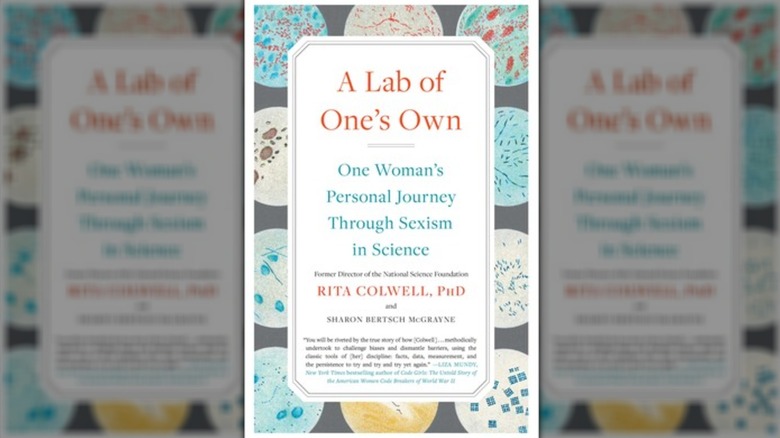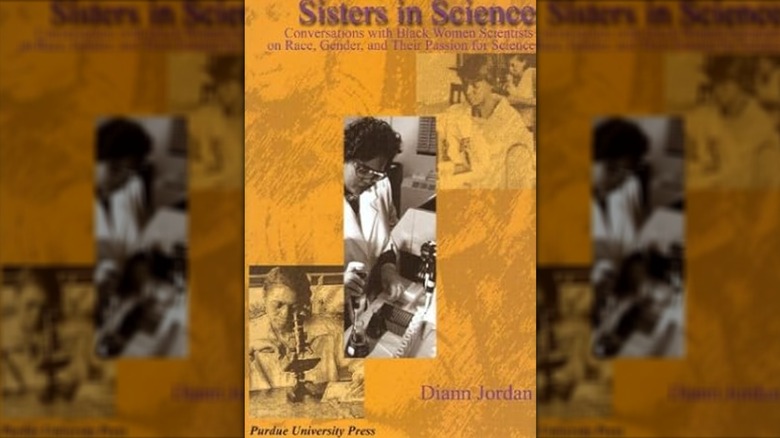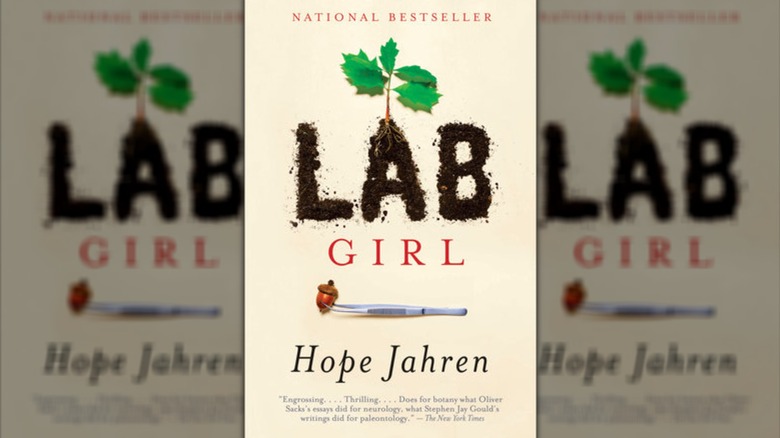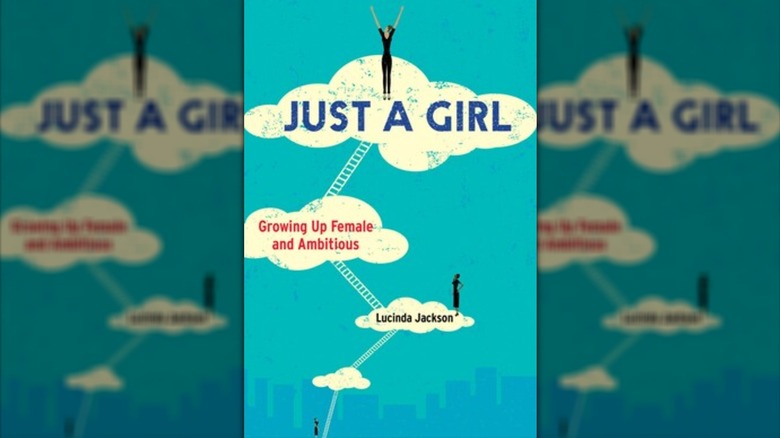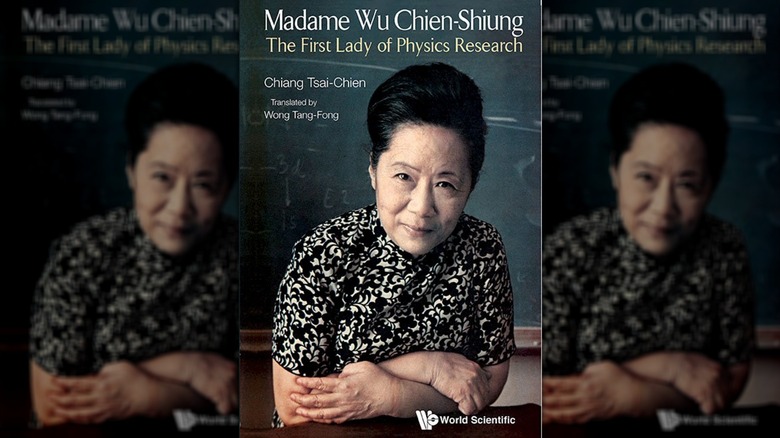The Absolute Best Books About Women In Science
We may receive a commission on purchases made from links.
Across the world's knowledge factories — laboratories, conferences, lecture halls, research roundtables — a familiar imbalance persists. Women may be present, but not in proportion, and rarely in numbers that match their potential. In the U.S., just over a third of researchers are women, per the American Association of University Women. In the most lucrative and high-growth sectors — engineering, computer science — that figure shrinks even further.
Conversations around the gender gap in STEM often frame the issue as a recruitment failure. The implication is that women simply aren't opting in; not enough girls are choosing physics in school, not enough women are applying for computer science degrees, and not enough female candidates are being drawn to the sector. But really, it's a failure of narrative, and the reasons are layered and stubborn. Gendered gatekeeping begins early. According to the Institution of Engineering and Technology, 45% of women are not encouraged to think about STEM careers in school. By the time careers are underway, the patterns have calcified; 32% of women get put off by how male-dominated the industry is. Women aren't failing science; the industry's infrastructure is failing them.
Too often, women in STEM aren't shown the basic signs they're valued at work. But that's not to say women were never there — only that too often, their names were overshadowed. Still, their work endures, which is why these books are inspiring and necessary. These books give "Library Science" a whole new meaning (not to be confused with Kaia Gerber's book club of the same name). Read them to understand the systems they challenged, and maybe, once you're done, pass one on to a curious girl still learning what she's capable of, so she sees where she might go.
A Lab Of One's Own: One Woman's Personal Journey Through Sexism in Science by Rita Colwell
Science prides itself on rigor, objectivity, and control. But Rita Colwell knows better than most how messy it gets behind the scenes — especially if you're a woman. In "A Lab of One's Own," she writes the #MeToo narrative that science has hereto upheld. Throughout, she traces the infuriating detours women in science have taken simply to be allowed to do their jobs, and what those detours ultimately taught them.
Colwell is one of the most decorated microbiologists of her generation, and the first woman to lead the National Science Foundation. But that didn't shield her from a career shaped by structural interference in the form of harassment and glass ceilings. The very obstacles intended to force women out and derail their ambition, as Colwell proves in this clear-eyed memoir, often pushed them into new ways of thinking. In some cases, women's interdisciplinary approaches flourished because the system refused to accommodate anything else. We have them to thank for discoveries the old boys' club never saw coming.
Harvard University featured the book in a 2020 Harvard Science Book Talk, and it touts a 4.26-star rating on Goodreads, accompanied by a flood of praise from young scientists. One reviewer called it "a must-read for any and all scientists," adding that it has been "hugely impactful in its intellect, candor, and warmth, and has inspired me to be the changes I wish to see in science." Another, this time on the LadiesofScience subreddit, described it as a "riveting history of how far we as women scientists have come."
Sisters in Science: Conversations with Black Women Scientists on Race, Gender, and Their Passion for Science by Diann Jordan
Whilst women remain underrepresented across the sciences, the barriers facing Black women are even steeper. The gender gap is compounded by systemic racial inequities that remain doggedly underexamined. According to AFRO, they make up just 1.6% of the nation's scientists and engineers. As the founder of Careers Communications Group told the Black media outlet, "This lack of diversity in STEM has real consequences for all of us. It means that we are not drawing on the full range of talent and perspectives that we need to solve the complex challenges facing our society, from climate change to healthcare to cybersecurity."
It is within this context that we should all be reading "Sisters in Science: Conversations with Black Women About Race, Gender, and Their Passion for Science." Compiled by soil scientist Diann Jordan, this book brings together interviews with Black women working across different fields of STEM. Among them: Georgie Dunston, who founded the National Center for Genomic Research at Howard University; Dolores Cooper Shockley, who became the first Black woman in America to earn a doctorate in pharmacology; and Hattie Carwell, a physicist whose work in nuclear science was matched by her decades-long commitment to championing women and people of color in STEM.
Through her chorus of phenomenal women, Diann Jordan has assembled a moving collection of interviews. This book also boasts academic weight and can be found in JSTOR. And it's no surprise it holds a 4.5-star rating on Amazon.
Lab Girl by Hope Jahren
If there's a single book that proves the literary force of a scientific mind, it's "Lab Girl." Written by geobiologist Hope Jahren, the memoir has been recommended by everyone from The New York Times — which named it a notable book of the year — to Reddit's Ladies of Science, where it's held up as essential reading. It also won the National Book Critics Circle Award and the American Association for the Advancement of Science Prize for Excellence in Science Books. It also doesn't hurt that Lab Girl doubles as a great fashion accessory for anyone currently learning how to nail the trendy garden girl aesthetic.
"Lab Girl" is many things at once: a study of plants and trees, a meditation on perseverance, a candid chronicle of mental illness, a plea amid funding cuts, as well as a love story between two friends trying to make a life in science without fully fitting into it. Her experiences with bipolar disorder are documented with the same curiosity she brings to soil samples and seedlings. If Jahren hadn't been a scientist, she might well have worked in creative writing. Luckily, "Lab Girl" proves she can do both.
Just a Girl: Growing Up Female and Ambitious by Lucinda Jackson
From over nearly fifty years in environmental biology and corporate leadership — three universities, four Fortune 500 companies — Lucinda Jackson has had a clear view of what it means to be a woman in spaces built by men. "Just a Girl: Growing Up Female and Ambitious" is her field report from that view, as she traces the mechanics of the exclusion she has seen in both academia and the commercial sector. She threads her own history through the public moments when gender inequality dominated the national conversation (like the Clarence Thomance and Brett Kavanaugh hearings, as well as the flare of the #MeToo movement).
Jackson is precise about the cost of bias once it hardens into policy and habit, but equally deliberate in mapping where change might still take hold. She offers practical ideas for redrawing the balance of power, informed by her decades of pragmatic survival, resisting those very structures. With a 4.49-star rating on Goodreads, it has taken root with readers across the spectrum, passing peer reviews with flying colors. One reader thanked her for "revealing the unseemly truth about the obstacles facing bright women in the technical world," and another lauded, "Jackson writes to make women feel heard." It's recommended reading for any woman who stands by the principle that we're not letting men police our workplace communication anymore.
Madame Wu Chien-Shiung: The First Lady of Physics Research by Chiang Tsai-Chien
If you're looking for one woman who embodies both the brilliance of modern physics and the injustice of its omissions, Wu Chien-Shiung is your woman. A Chinese American experimental physicist, she worked on the Manhattan Project before designing the "Wu Experiment," a landmark in particle physics that dismantled the law of parity and reshaped the field. Her work earned her the inaugural Wolf Prize in Physics, the Comstock and Bonner Prizes, and the National Medal of Science. Princeton named her its first female honorary doctorate recipient, as she took the helm of the American Physical Society as its first woman president.
Wu was also forthright in her criticism of gender discrimination. At an MIT symposium, she spoke publicly about the barriers women in science continued to face — a conversation still uncomfortably relevant. Many in the scientific community regard her as the most deserving physicist never to have received a Nobel Prize, and hopefully, this biography goes some way to redressing that gap.
"Madame Wu Chien-Shiung: The First Lady of Physics Research" is written by Chiang Tsai-Chien, with Wong Tang-Fong at the helm of its English translation. Much like nuclei in a high-energy reaction, the work fuses meticulous scientific details with a portrait of a life lived at the centre of twentieth-century physics. It holds a 4.8-star rating on Amazon; one reviewer called it "a great source of information about the life and work of Madam Wu for readers who do not understand Chinese."
How we chose these books
There is no shortage of women in science's history — only a shortage of recognition. These overlooked histories informed how we approached the books on this list. Each title is nonfiction, centred on real women whose contributions shaped their fields, whether or not the credit followed. We sought books that could give readers, at once, historical insight and be relevant to the present — speaking to those drawn to the past, as well as those navigating scientific careers today. Our choices draw on our own reading, recommendations from online networks of women in STEM, and the wider literary community. As a result, we compiled a list that resists erasure and keeps women's names and work in full view.

